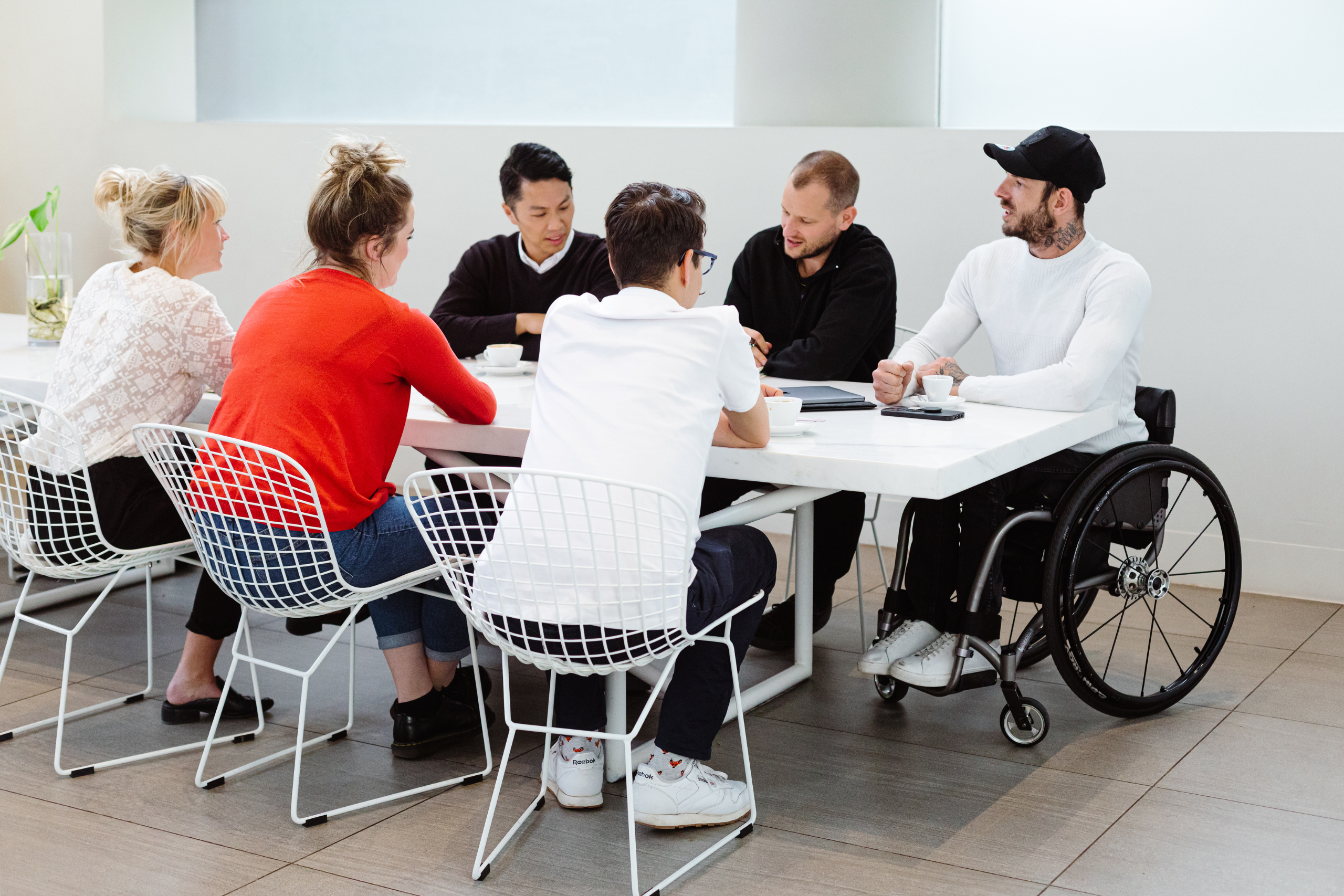How User Experience Workshops Drive Disability Inclusion in Australia

UX Workshops: Build Accessible Products, Reach New Markets
In today’s Australia, diversity and inclusion are more than just buzzwords—they’re non-negotiables! With around 1 in 6 Australians living with disability, creating products and services that cater to everyone isn’t just the right thing to do; it’s essential for success in the modern marketplace.
Enter the Secret Weapon: UX Workshops
Enter User Experience (UX) workshops – the secret to crafting accessible solutions that resonate with everyone. These workshops bring together a diverse crew of individuals with a varied range of disabilities to road-test products, services, or ideas, ensuring they’re accessible for everyone to use.
The Golden Rule: Give Everyone a Fair Go!
By getting people with disability involved in the design and testing phases, organisations can get real-world insights into the hurdles they face and uncover areas ripe for improvement. Studies show that for every $1 invested in Universal Design, there’s a return on investment of up to $13! Think about it – features like small ramps or automatic doors benefit everyone, not just those with disability. It’s much more profitable than retrofitting your product once it’s launched. You can read more about universal design in our blog; Building an Inclusive Future: Accessible Design and Disability in Trades.
Unlocking a Massive Market
According to a report by the ABS approximately 4.4 million Australians have disability, representing 18.5% of the population. Despite this significant proportion, accessibility in products and services remains a challenge for many individuals.What’s more, inclusive design isn’t just about doing the right thing; it’s about tapping into a massive market opportunity!
According to the World Health Organization (WHO), people with disability represent a massive—and often overlooked—consumer base, making accessibility a smart play for companies looking to boost their bottom line. As the world’s largest minority group, people with disability represent 15% of the global population. Add in our families and friends and you have over five billion customers who want to buy from brands that serve and include people with disability. In terms of spending power, this group of people controls over $13 trillion in disposable income every year. Yet, people with disability report 75-80% of their customer experiences are a fail!
Putting UX Workshops to Work
If you’re working on a new product prototype and want to double-check it’s got all the right accessibility features. Or maybe you’re brainstorming a fresh service and keen to understand the user journey of someone with disability. That’s where UX workshops become a massive asset for your business. These sessions are led by seasoned pros who bring a wealth of lived experience to the table, sharing insights that you just can’t get from a standard focus group. By tapping into their know-how, organisations can make informed decisions that level up the experience for all users.
Streamlined Feedback
These expert-led sessions are packed with actionable insights, presented in a clear and concise way. Participants get to share their experiences in a supportive environment, providing invaluable insights that can shape the direction of a project. And if you’re feeling a bit lost on where to start? No worries. Discovery sessions are here to save the day, offering up clarity on what needs to be done and setting clear objectives for the design and testing process. One of the coolest things about UX workshops? They’ve got a knack for uncovering sneaky issues that might’ve slipped through the cracks otherwise. Sure, a product might seem accessible at first glance, but dive a little deeper, and you might uncover hidden barriers that put up roadblocks for people with disability.
Partnership with Coles Group to Enhance Accessibility!

Image Source: Coles Group
We were thrilled to partner with Coles Group with the goal of making Coles Own Brand products and services more accessible for everyone. Through the UX workshop we brought together a focus groups featuring a diverse range of people with disabilities, we identified areas for improvement in product accessibility. Their valuable insights directly led to the enhanced accessibility of 45 Coles Own Brand products in 2023.
A key example of this improvement involved seed oil products. By significantly reducing the force required to open the bottles, we’ve made these everyday essentials much easier for people with limited grip strength or dexterity to use.
How can GSA help your brand
So, what’s the bottom line? Disability inclusion isn’t just a box to tick—it’s a journey we’re all on together. By partnering with GSA, you’re not just investing in accessibility, you’re investing in a future where everyone feels valued and empowered.
Get Skilled Access is more than just consultants; we’re a team passionate about disability access and inclusion. Our team members have a unique combination of lived experience with disability and extensive professional expertise. We’ve worked with a wide range of reputable brands and teams, bringing a wealth of practical knowledge and diverse perspectives to the table.
Let Get Skilled Access guide you on your inclusion journey. We’ll equip you with the tools and insights needed to create products and services that are truly accessible and inclusive for everyone. Contact us today and unlock the full potential of your business, while making a positive impact on the lives of millions.
By bringing people with disability into the testing process, organisations can resolve these issues, saving time and money down the line.
